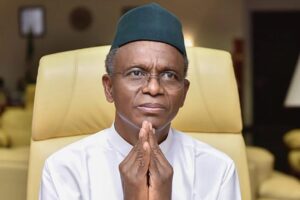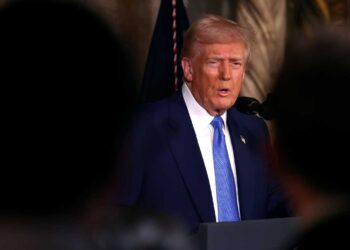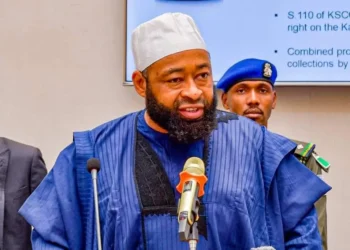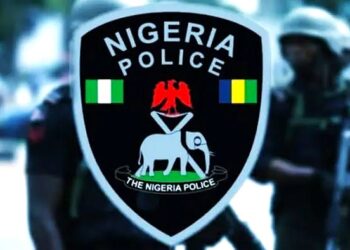Political Turmoil as Former Kaduna Governor Dumps APC for SDP
Nigeria’s political scene is buzzing with intense debates following the defection of former Kaduna State Governor, Nasir El-Rufai, from the All Progressives Congress (APC) to the Social Democratic Party (SDP).
Once a staunch supporter of the ruling APC, El-Rufai’s dramatic departure has sparked a political storm, raising questions about the future of opposition politics, the strength of the ruling party, and whether this move signals a broader realignment ahead of the 2027 general elections.
While his supporters hail the decision as a bold step toward reforming Nigeria’s political system, critics see it as nothing more than an act of political survival following his declining influence within the APC.
So, why did El-Rufai leave, how is the APC responding, and what does this mean for Nigeria’s political future? Let’s dive in.

Why Did El-Rufai Leave the APC?
A Once-Trusted Ally Turns Against the Ruling Party
On March 10, 2025, El-Rufai announced his resignation from the APC, a party he had helped build and fiercely defended for years. According to him, the APC has strayed far from its founding principles, becoming increasingly intolerant of internal democracy and dismissive of members’ voices.
El-Rufai accused the party of being hijacked by political elites who prioritize personal interests over governance and progress.
“I cannot continue to be part of a party that has abandoned the vision we fought for,” he declared in his resignation speech. “The APC we built is no longer the APC that exists today.”
Beyond leaving the party, El-Rufai also hinted at forging alliances with other opposition figures to strengthen the SDP and challenge the APC’s dominance in 2027.
But was this move truly based on ideology, or was it driven by personal ambitions?
APC Fires Back: ‘El-Rufai is Just Bitter’
Party Leaders Claim He Left Because He Didn’t Get a Ministerial Position
El-Rufai’s departure has not gone unnoticed by the APC, which has dismissed his decision as nothing more than a tantrum following his failure to secure a ministerial appointment under President Bola Ahmed Tinubu.
The party’s National Publicity Secretary, Felix Morka, accused El-Rufai of acting out of personal frustration rather than genuine political ideology.
“El-Rufai’s defection is not about principles; it’s about power. He expected to be rewarded with a ministerial post, and when that didn’t happen, he turned against the party,” Morka said in a statement.
Morka further argued that El-Rufai’s sudden interest in ‘opposition unity’ was nothing more than a desperate bid to remain politically relevant.
“El-Rufai is free to join any party he likes, but Nigerians know why he’s doing this. It has nothing to do with democracy and everything to do with his personal ambition.”
Not Everyone in the SDP is Happy With El-Rufai’s Arrival
Party Youths and Leaders Express Concerns Over His Leadership Style
While El-Rufai may have expected a warm welcome in the SDP, the reality has been far from smooth.
The SDP Youths and Supporters Coalition openly rejected his membership, accusing him of being too authoritarian and anti-democratic in his leadership approach.
“We cannot accept a politician who has a track record of intolerance and dictatorial tendencies,” the group said in a statement.
Even SDP’s 2023 presidential candidate, Adewole Adebayo, voiced concerns, stating that while El-Rufai is a strong political figure, he also comes with baggage that could destabilize the party.
“El-Rufai is a brilliant strategist, but his leadership history is controversial. We must be cautious,” Adebayo warned.
These internal tensions raise serious questions: Is El-Rufai truly committed to building the SDP, or is he using it as a temporary platform for his own political comeback?
Critics Say El-Rufai is Just ‘Looking for a New Home’
Is His Defection Really About the People?
Political analysts and opposition figures are also skeptical about El-Rufai’s true motives.
According to Adnan Mukhtar Tudunwada, a former Peoples Democratic Party (PDP) aspirant, El-Rufai’s move was not about serving the people but rather about securing a new political home after losing influence in the APC.
“I don’t believe El-Rufai joined the SDP for the good of Nigerians. He did it because he no longer has a future in the APC,” Tudunwada said.
He went further, suggesting that if President Tinubu had given El-Rufai a ministerial appointment, he would have never left the APC.
“This is just noise after defeat. He started attacking Tinubu’s government because his political ambitions could no longer be realized in the APC,” Tudunwada added.
These criticisms add to the growing doubts about whether El-Rufai’s defection is a game-changing political move or just another case of a politician switching sides for personal gain.
Will More Politicians Leave the APC?
Rumors of a Mass Exodus Circulate
El-Rufai’s defection has fueled speculation that more politicians may abandon the APC in the coming months.
The SDP National Chairman, Shehu Musa Gabam, hinted that several top politicians were considering joining the party. Names such as:
Former Ekiti State Governor, Kayode Fayemi
Former Osun State Governor, Rauf Aregbesola
have been mentioned as possible defectors, though Fayemi has publicly denied any plans to leave the APC.
If more politicians follow in El-Rufai’s footsteps, it could signal a major realignment of Nigeria’s political landscape before the 2027 elections.
What Does This Mean for 2027?
Can the SDP and Other Opposition Forces Challenge the APC?
With Nigeria heading toward another crucial election cycle, El-Rufai’s defection raises major questions about the strength of the opposition.
Will this move help unite opposition parties into a formidable force, or will it further fragment the political space?
Read also: “El-Rufai Warns Against Unconstitutional Removal of Elected Officials Amid Rivers State Emergency”
While El-Rufai presents himself as a leader championing democracy and opposition unity, many believe his actions are motivated by political survival rather than principle.
As 2027 approaches, his defection could either be a catalyst for change or just another failed political gamble.
One thing is clear: Nigeria’s political landscape is shifting, and the coming months will be crucial in determining who truly holds the power.












